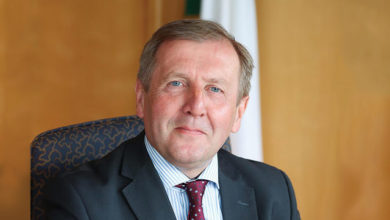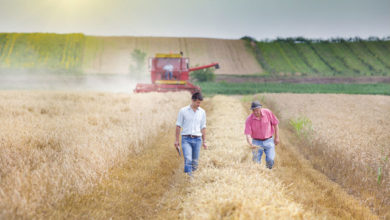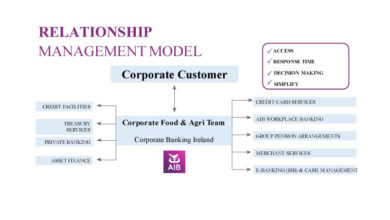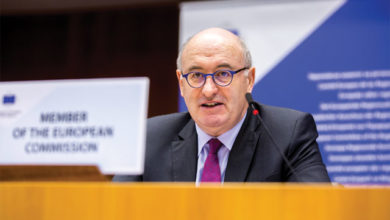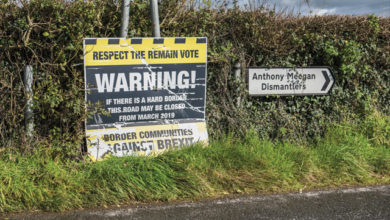Brexit: the agri-food challenge
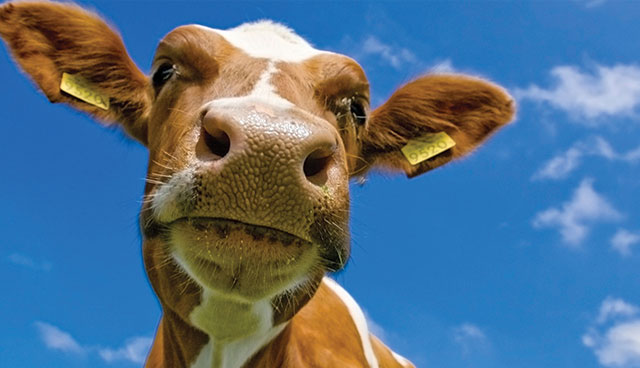

For the Irish agri-food industry, British withdrawal from the EU represents what is being characterised in some quarters as the most pressing headwind faced in 50 years. eolas reports.
Irish Farmers’ Association (IFA) President Joe Healy believes that the biggest threat to Irish agriculture in half a century is the impact of the Brexit negotiations on farm incomes.
Speaking at the organisation’s 2017 annual meeting Healy said that with 40 per cent of Ireland’s food exports going to the UK, no other Member State and no other sector is as exposed in these negotiations.
He added: “Agriculture and food cannot become a battleground between Brussels and London. There are too many farm livelihoods and jobs at stake. Politics cannot be allowed override our fundamental economic interests.
“The Irish Government must use the strong relationship it has with both EU and UK leaders to influence a constructive approach to these difficult negotiations. In Brussels, the Commissioner for Agriculture, Phil Hogan, must make the retention of free trade in agriculture and food products between the EU and UK a priority. In the short term, uncertainty has led to the weakening of sterling putting serious pressure on prices and exports.
“Let’s be clear: it is farmers who have taken most of the pain resulting from the weakness of sterling. Beef farmers took a hit of €150 million last year as a result of this alone and mushroom farmers saw their margins wiped out. These losses are a direct result of a political decision outside farmers’ control and cannot be tolerated. Politicians in Dublin and Brussels cannot ignore the ongoing impact of the sterling devaluation, and direct aid for the farmers and sectors affected must be on the agenda.”
For his part, Agriculture Minister Michael Creed has said that the continuation of the current trading relationships between the UK and Ireland is a priority. He spoke after a recent meeting with his London counterpart Andrea Leadsom.
“I believe that, given the high levels of agri-food trade between Ireland and the UK and the highly integrated nature of that trade, it is in both our interests to maintain the existing relationship to the maximum extent possible.”
In the course of their discussions both Ministers acknowledged the long tradition of trade in agri-food between the two countries, and agreed that they wanted this to continue. They discussed their respective departments’ preparations to date, and the approaches being taken from a whole-of-government viewpoint. They noted where the main challenges are likely to arise, including in relation to how tariff and other trade issues will be dealt with in the post-exit relationship, the practical difficulties associated with possible border controls and certification requirements and the particular challenges presented from a North-South perspective.
“There is little doubt that agri-food and the rural economy of Ireland will be most exposed to the downside of the UK leaving the European Union.”
Edgar Morgenroth, ESRI
Creed welcomes what he regarded as the acknowledgment by London of the shared issues both countries face, and Leadsom’s assurance that the interests of the agri-food and fisheries sectors are a key priority for her in the upcoming negotiations.
“We have agreed this will be a process of regular consultation as the situation in relation to Brexit unfolds. I look forward to continuing engagement at both political and official levels over the coming months in the interests of securing the best possible outcome for the Irish agri-food and fisheries sectors.”
Commenting on the recent Bord Bia report, which estimates that Irish food exporters to the UK have lost €570 million through falls in the value of sterling in 2016, the Irish Creamery Milk Suppliers’ Association (ICMSA) president, John Comer, said that the only thing that we could be certain of in relation to the UK market for, at least, the next two years was uncertainty and that the Government must be absolutely focussed on the Brexit negotiations and processes over that period.
He added: “We are the most exposed and our Government has to make our EU partners understand that our position is unique. Our exposure to the UK market is greatest and therefore the losses resulting from the fall in sterling will be very significant. That’s well understood by the farmers.
“What they don’t understand or accept is the statistic that has the overall value of Irish food and drink exports at €11.15 billion and healthy profits for the processors involved while, for instance, dairy farmers are only just recently back at a price a few cents over the cost of production, having endured a disastrous two years during which they made no income whatsoever from their milk while beef, tillage and pig producers also struggled under poor prices.
“The big question, even bigger than what’s going to happen vis-a-vis the UK, is why at the same time as the value of Irish food exports grow year-on-year we still have a situation where the primary producers, on whom every other link completely depends, can go for prolonged periods not alone making no income from their produce. In fact, farmers are actually losing money.”
The potential long-term impact of Brexit on Ireland will be severe, according to a recent report published by the Economic Social Research Institute (ESRI). This will particularly be the case, where Irish agriculture and food are concerned, it found.
The report, which models the medium to long-term potential macroeconomic impact of Brexit on Ireland, assesses three potential economic scenarios that might unfold up to 10 years after the UK formally leaves the European Union.
The scenarios investigated are intended to cover a range of potential agreements between the UK and the EU. However, in all cases, it is projected that the level of Irish output is permanently below what it otherwise would have been in the absence of Brexit.
The ESRI’s Edgar Morgenroth said that Brexit is bad news for the Irish economy, irrespective of the final arrangements that are arrived at between the UK and Europe.
He added: “So what we are looking is degrees of badness and some of the possible scenarios are, potentially, very bad news for farming and food.
“For example, if the UK’s default position is to settle for a World Trade Organisation tariff structure, then Irish beef would be subject to a 50 per cent levy on entry into the UK.
“This works out at €500 for every €1,000 of product traded. So the question is: will Irish beef imports to the UK be price competitive if these trading arrangements are put in place?”
Morgenroth confirmed that milk and dairy products will be subject to a 30 per cent levy under similar circumstances.
“Of course this brings up the issue of the cross-border transportation of milk, which is so prevalent today.
“Each of these movements would be eligible for the 30 per cent levy. Adding to the concerns for agri-food is the fact that the UK could opt to agree tariff free trade deals with individual countries outside of the EU.”
Morgenroth said these are these are worst case scenarios.
“However, there is little doubt that agri-food and the rural economy of Ireland will be most exposed to the downside of the UK leaving the European Union.”
Irish Cattle and Sheep Farmers’ Association (ICSA) president Patrick Kent believes the risk of tariffs on trade between Ireland and the UK has increased in the wake of the speeches made by the British Prime Minister Theresa May since the beginning of this year.
“Coupled with this, we also face the increased risk of the UK market being flooded with cheap beef and lamb from outside Europe. It’s the worst of all worlds for Irish farmers.”
Kent also stated that Ireland would once again have to examine levels of production.
“ICSA believes we should only be producing that for which we have markets. With the UK being our most valuable customer and the potential for that market now being decimated it reinforces the need to take a fresh look at producing only at a level at which there are viable markets.”

